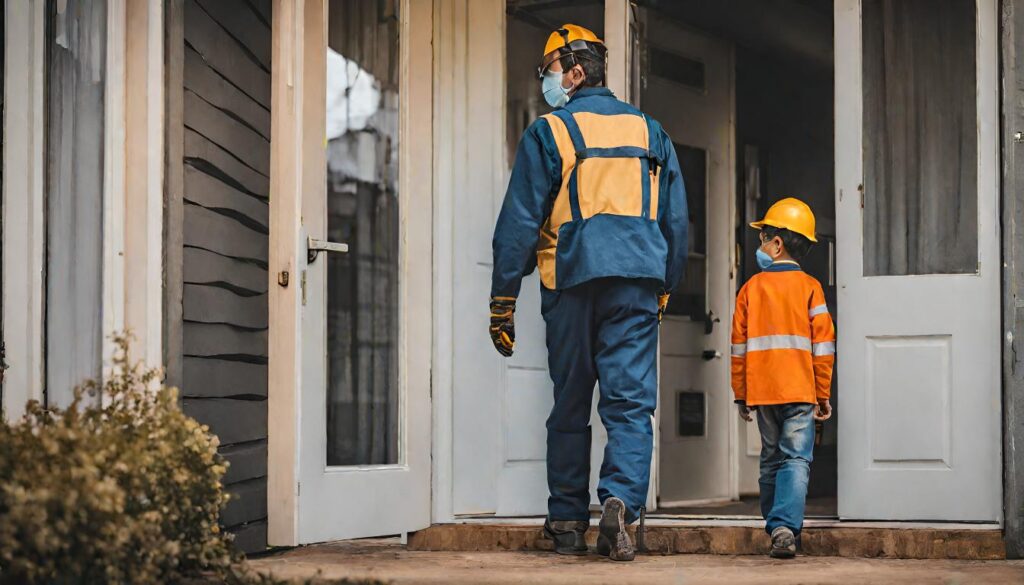Introduction
NEBOSH IG1 is about the management of occupational safety and health. It starts with the question of, why should we manage occupational safety and health. Of course, there are many reasons for that but the main reasons are Moral, Legal & Financial.
On one hand, when we discuss the legal reasons, we talk about the ILO conventions such as C155 which set objectives for organisations and include Article 18 about employer obligations. On the other hand, the financial or economic reasons are about the cost arising from accidents and incidents, which can be direct like fines and compensations, and indirect like loss of goodwill or reputation of an organisation.
In spite of the fact that the moral or ethical reason for managing occupational safety and health is actually the vital one, it is normally overlooked. In this article I will explain the Moral reasons to manage health and safety, giving examples of how to respond to expected questions in the NEBOSH IG1 exam.
NEBOSH question about Moral reasons
Usually, NEBOSH questions about morals come in IG1, as part of a discussion about the company’s performance, regarding its way of managing occupational safety and health. In the scenario, you will find many immoral attitudes that can support your answer. The points to be considered for your answer are, but are not limited to:
1- Company moral duty.
Obviously, the companies have an ethical or moral duty to the workers. There is an obligation from organisations toward workers, to provide a safe place of work. Because they came to work to earn a living and get a salary for their time, skills and services. Getting injured doing that is morally unacceptable.
2- Injuries impact on the workers.
If a worker gets injured, that will have many consequences on him, and the extent of the impact is proportionate to the severity of the accident.
Injuries such as severe cuts or wounds, amputation, electrical shock or burns have a physical and mental impact on the victim, which can be avoided by suitable control measures.

3- The impact on the worker’s family.
The effect of the accident will not stop on the worker only, but also on his family, because they will directly be affected physically, emotionally and financially. The injured worker may be ceased from working for a while or even permanently.
4- Other workers may be affected.
One of the moral reasons to manage occupational safety and health in a workplace is the accident’s mental health (psychological) effect on the colleague’s injured worker. For instance, if the workers witness a severe injury, they may experience a psychological impact such as fear, anxiety, panic, shock, and post-traumatic stress disorder.
5- Poor safety culture
Safety culture refers to norms, ideas and customs regarding safety in a specific organisation, which can be negative and positive. A negative safety culture is morally unacceptable.
6- Weak risk assessment.
In the Open book exam scenario, you may find a paragraph explaining an issue in the risk assessment, like an outdated one. This is a clear indicator of the negative company attitude toward health and safety. As we know one of the root causes of any accident, is gaps in the organisation’s risk assessment.
7- First Aid & Number of first aider
It is a moral duty to provide first aiders, suitable first aid boxes and refresh training for the first aider as required for emergency cases. If there is any weakness in any company’s performance regarding any of these points, it can be considered as an immoral attitude.
8- Training requirements.
Training is one of the roles, and responsibilities of the employer as well as a right for the workers, which is a part of providing a safe system of work. Workers who are involved in accidents are generally incompetent, and untrained. It is the employer’s moral and legal responsibility to provide competent co-workers and train inexperienced ones.
9- Tight schedules (work is the priority).
At work, companies put pressure on the employees to complete the work at any cost, to preserve a schedule or customer relationship. Ignoring the safety procedure and taking shortcuts to preserve time, money or resources is not moral behavior.
10- Investigation
When accidents happen, the first action from responsible management is to conduct a suitable investigation, on what happened and why it happened, to prevent reoccurrence. Accident investigation is a moral duty and legal requirement.
Conclusion:
NEBOSH gives marks for correct technical points; try your best to connect your answer with the scenario, and explain your point directly. Moral reasons it usually overlooked and only explained via statistics to prove an emotional point, but as we see, it has technical perspectives.

Moral Argument in Safety (NEBOSH Mindset)